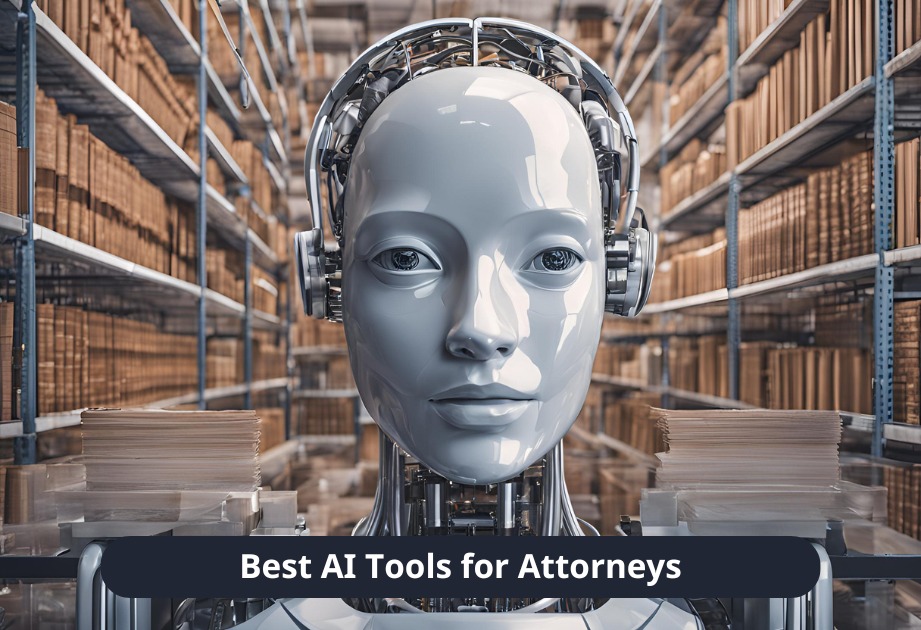The legal profession is evolving, and artificial intelligence (AI) is leading the way. Attorneys are embracing AI tools to enhance efficiency, reduce costs, and improve client outcomes. From legal research to document review, AI offers solutions tailored to the needs of modern law firms. This article explores the best AI tools for attorneys, detailing their features, benefits, and use cases.
Table of Contents
Why Attorneys Need AI Tools
The legal field is complex, with tasks ranging from drafting contracts to analyzing case law. AI tools simplify these processes, allowing attorneys to focus on strategic and client-centered work. Key benefits include:
- Efficiency: Automating repetitive tasks saves time.
- Accuracy: Reduces human error in document drafting and analysis.
- Cost-Effectiveness: Cuts operational costs by streamlining workflows.
- Enhanced Decision-Making: AI insights support more informed legal strategies.
Best AI Tools for Attorneys in 2025
1. Casetext
Casetext is a leading AI-powered legal research tool that leverages natural language processing (NLP) to provide accurate and relevant case law, statutes, and regulations.
Features:
- CARA A.I. for contextual legal research.
- Comprehensive library of federal and state cases.
- Easy-to-use search interface.
Benefits:
- Saves hours on legal research.
- Provides precise, on-point citations.
- Integrates seamlessly with existing legal workflows.
Use Case: Attorneys can use Casetext to quickly locate case precedents, enhancing the quality of their legal arguments.
2. LawGeex
LawGeex specializes in contract review and analysis, using AI to compare documents against predefined standards and industry benchmarks.
Features:
- Automatic contract review.
- Risk identification and mitigation.
- Detailed reporting and suggestions.
Benefits:
- Speeds up contract negotiations.
- Ensures compliance with legal standards.
- Reduces the risk of costly errors.
Use Case: Corporate lawyers can streamline contract reviews, focusing on high-level negotiations instead of manual edits.
3. Luminance
Luminance is an AI-driven platform for document analysis, particularly useful for due diligence and compliance.
Features:
- AI-powered document clustering and categorization.
- Advanced pattern recognition.
- Multilingual support.
Benefits:
- Accelerates due diligence processes.
- Identifies potential risks in vast document sets.
- Enhances data security and privacy.
Use Case: Law firms conducting mergers and acquisitions (M&A) can analyze thousands of documents in record time.
4. ROSS Intelligence
ROSS Intelligence is a legal research tool that uses machine learning to provide concise answers to complex legal questions.
Features:
- AI-driven legal research.
- Intuitive question-and-answer interface.
- Extensive legal database.
Benefits:
- Delivers precise answers in seconds.
- Reduces research time significantly.
- Supports strategic case preparation.
Use Case: Litigators can use ROSS Intelligence to craft compelling arguments by finding case law that supports their positions.
5. Kira Systems
Kira Systems excels in contract analysis and due diligence, making it a favorite among corporate attorneys.
Features:
- Automated clause extraction.
- AI-powered contract analysis.
- Customizable machine learning models.
Benefits:
- Boosts accuracy in contract review.
- Reduces manual labor.
- Improves compliance and risk management.
Use Case: Corporate legal teams can use Kira Systems to analyze large volumes of contracts efficiently.
How to Choose the Right AI Tool for Your Practice
When selecting an AI tool, consider the following factors:
- Practice Area: Ensure the tool aligns with your legal specialty, such as litigation, corporate law, or compliance.
- Ease of Use: Opt for tools with intuitive interfaces to reduce training time.
- Integration: Choose tools that integrate with your existing software, such as case management systems.
- Cost: Evaluate the ROI based on subscription fees and potential time savings.
- Support and Updates: Select providers that offer regular updates and customer support.
The Future of AI in the Legal Industry
AI is not just a trend; it is the future of legal practice. As these tools become more advanced, attorneys can expect:
- Improved Client Service: Faster turnaround times and better outcomes.
- Increased Access to Justice: Lower costs make legal services more accessible.
- Enhanced Collaboration: AI tools facilitate collaboration among legal teams.
Conclusion: Embrace AI for a Competitive Edge
The best AI tools for attorneys are transforming the legal landscape, enabling professionals to work smarter, not harder. By integrating these tools into their workflows, attorneys can enhance efficiency, accuracy, and client satisfaction. Whether you’re a solo practitioner or part of a large firm, investing in AI is a strategic move toward future-proofing your legal practice.
Start exploring these tools today and experience the benefits firsthand. The future of law is here, and it’s powered by AI.
